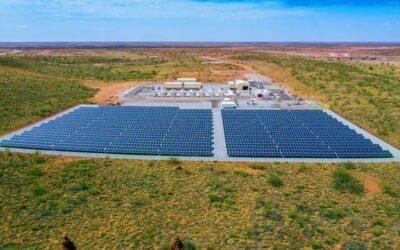Imergy and SunEdison and property developer APG are among the international players looking to participate in India's "decade of energy transformation". Image: Imergy facebook page.
Renewables-powered energy systems that work independently of the grid at warehouse locations in India will be provided with flow battery-based energy storage solutions by US company Imergy.
Singapore-based property development company Assetz Property Group (APG) is installing the off-grid systems at its own industrial warehouse locations in India. The first project installed by the partnership will be in the state of Karnataka.
Enjoy 12 months of exclusive analysis
- Regular insight and analysis of the industry’s biggest developments
- In-depth interviews with the industry’s leading figures
- Annual digital subscription to the PV Tech Power journal
- Discounts on Solar Media’s portfolio of events, in-person and virtual
The company said its warehousing business is growing quickly in India due to the country’s nascent e-commerce market, with Assetz expecting to acquire further warehouse space in three Indian states, Karnataka, Tamil Nadu and Maharastra, although the projects are expected to be more concentrated in the first two than the latter. Assetz' plan of investment in warehouses is expected continue over the next five years, the company said.
According to APG, Imergy’s vanadium redox flow battery systems were selected for their low cost and high performance, with the batteries’ reliability and consistency at fast charge and discharge praised and their unlimited cycle life and ruggedness at extreme high and low temperatures also touted.
Imergy was also the vendor of choice for recently announced microgrid projects in India by developer SunEdison.
“APG's off-grid warehouse energy system initiative will demonstrate that the real estate industry can take a leadership position in India's shift towards a cleaner, more reliable energy infrastructure. The need of the hour in India and around the world is clean energy solutions, and as a responsible corporate citizen, APG will continue to adopt cost-effective solutions that reduce our carbon footprint,” Assetz Property Group CEO Ben Salmon said.
Blogging for PV Tech Storage in November, Dr Rahul Walawalkar of the India Energy Storage Alliance (IESA) wrote that he and much of India expects to see a “decade of energy infrastructure transformation”.
Meanwhile, over at PV Tech Storage’s sister site, the solar technology-based PV Tech, a blog published today gives an overview and some insights into the country’s overarching push to have an installed capacity of 100GW of PV by 2022.






